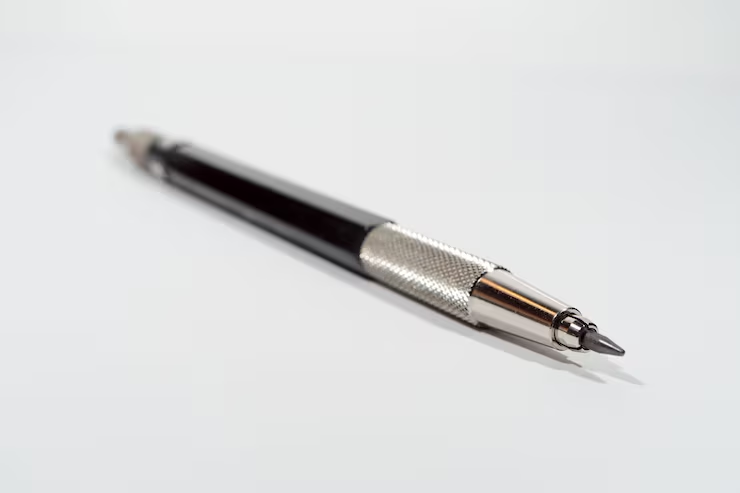20 Inventors Who Hated Their Own Inventions
Not all inventors loved what they created. Some grew to despise their inventions due to unintended consequences, misuse, or ethical concerns. From weapons of war to seemingly harmless conveniences, here are 20 inventors who ended up hating what they unleashed on the world.
-
1. John Sylvan: Coffee Pods (K-Cups)

John Sylvan invented the Keurig coffee pod system in the 1990s to make coffee brewing faster and more convenient in offices. He became deeply concerned about the environmental impact. K-Cups are not biodegradable or recyclable, leading to tons of plastic waste. Despite his regrets, the product exploded in popularity. Keurig Green Mountain became a multi-billion dollar company, and coffee pods are now a staple worldwide even as environmental concerns continue.
-
2. Alfred Nobel: Dynamite

Nobel invented dynamite in 1867 as a safer alternative to nitroglycerin for mining and construction. He was horrified when his invention was being used in warfare. He was devastated when a newspaper mistakenly published his obituary calling him the “merchant of death”. He left his fortune to establish the Nobel Peace Prize, trying to rewrite his legacy.
-
3. Tim Berners-Lee: The World Wide Web

Invented in 1989 to help scientists share information more efficiently. Berners-Lee grew disillusioned with how the internet evolved, especially when it comes to privacy and misinformation. The World Wide Web transformed the world and the rest is history.
-
4. Mikhail Kalashnikov: AK-47

Created in 1947 as a reliable rifle for Soviet troops. Kalashnikov was and still is responsible for millions of deaths. He later expressed spiritual regret. The AK-47 remains one of the most widely used weapons in the world. To his own redemption, if he didn't invent it, someone else would have. It was only a matter of time.
-
5. Ethan Zuckerman: Pop-Up Ads

While rather a concept than an invention, Zuckerman came up with the idea when he was working at Tripod.com in the 1990s. He wanted a way to separate advertising from page content. He later apologized publicly, saying it was one of the worst advertising innovations ever. Pop-ups quickly became hated by internet users. They were largely replaced by other more sophisticated but no less annoying ad models.
-
6. Kamran Loghman: Pepper Spray

Loghman helped develop pepper spray for law enforcement in the 1980s. He was disturbed to see it being used against peaceful protesters, particularly during the Occupy Wall Street movement. Still widely used by police and security forces.
-
7. Robert Oppenheimer: The Atomic Bomb

As the scientific director of the Manhattan Project, Oppenheimer was key in developing the first nuclear weapon. After seeing the devastation of Hiroshima and Nagasaki, he famously quoted, “Now I am become Death, the destroyer of worlds.” Nuclear weapons reshaped geopolitics. Oppenheimer spent the rest of his life advocating against nuclear proliferation. Some argue that nuclear weapons were necessary to prevent further world wars at the scale seen in World War I and II, and without them the world was destined to enter World War III, but who knows.
-
8. Arthur Galston: Agent Orange

Galston developed a chemical compound to speed up plant growth. The compound was the basis for Agent Orange in the Vietnam War. The U.S. military weaponized his discovery to destroy jungle foliage, causing massive environmental and human harm. He became an activist against its use. The legacy of Agent Orange remains one of illness, birth defects, and ecological damage in Vietnam.
-
9. Vincent Connare: Comic Sans Font

The least significant entry in the list. Connare created Comic Sans in 1994 for Microsoft. He didn’t exactly hate it at first but later cringed at how people misused it in inappropriate places like funeral notices and resumes. Comic Sans became a cultural meme and is often mocked as the most hated font in history.
-
10. Ronald Reagan: No-Fault Divorce Law

Reagan signed the first no-fault divorce law in California in 1969. After seeing how it contributed to the rise in divorce rates, including his own failed marriage, he regretted the impact it had on families. No-fault divorce spread across the U.S. and is now standard in most states.
-
11. Philo Farnsworth: Television

Farnsworth invented the first fully electronic TV system in the 1920s. He hoped television would educate and enlighten. Instead, he felt it became a tool for mindless entertainment. We all know how this story unfolded.
-
12. Tom Anderson: MySpace

“Tom from MySpace” co-founded one of the first major social networks. He later became disillusioned with social media's toxic direction and withdrew entirely, refusing to join Twitter or Facebook. MySpace collapsed under the weight of better platforms. Tom retired as a multimillionaire and stays far away from the tech world.
-
13. Karl Benz: The Automobile

Benz built the first gasoline-powered car in 1885. He was worried about the safety of cars and pollution. He was right, but the benefits of cars greatly outweigh their side effects. Benz should be proud of what he created.
-
14. Bob Propst: The Office Cubicle

Designed in the 1960s to improve productivity and privacy in open offices. Propst intended for cubicles to encourage creativity, but businesses used them to cram more people into smaller spaces. He called it "monolithic insanity." The cubicle became the symbol of soulless corporate life.
-
15. Tony Fadell: The iPod

As a leading figure behind the iPod and later the iPhone, Fadell paved the way to the smartphone era. He has since expressed regret over how smartphones fuel addiction, shorten attention spans, and encourage dopamine-driven behaviors. The smartphone revolutionized modern life but at great psychological and societal cost.
-
16. William Shockley: The Transistor

Shockley helped invent the transistor, which is the foundation of all modern electronics. But over time, he became unhappy with how technology was developing and got involved in harmful fake science about genetics. Transistors power everything from smartphones to satellites. Considered by many to be the most important invention of the 20th century.
-
17. Gary Starkweather: The Laser Printer

Starkweather invented the first laser printer while at Xerox in the 1960s. He feared it would contribute to information overload and mindless paper consumption. He was right. He was also frustrated by how slow businesses were to see its potential. They are among the first things to criticize in discussions regarding the environment despite having a relatively smaller footprint compared to many other daily activities. Today, "paperless" is celebrated everywhere and is a major target for many organizations.
-
18. Laszlo Biro: The Ballpoint Pen

Biro created a more practical alternative to fountain pens in the 1930s. He disliked how his invention became a disposable commodity, contributing to a throwaway culture. Ballpoint pens became the most widely used writing instruments in the world and often just as quickly discarded.
-
19. John Pemberton: Coca-Cola

Pemberton invented Coca-Cola in 1886 as a medicinal tonic. As a morphine addict, he originally used coca leaves. He was disturbed when it became commercialized as a sugary soft drink. Coca-Cola became one of the most recognized brands in the world.
-
20. James Goodfellow: The PIN Code

Goodfellow invented the modern PIN and ATM system in the 1960s. He later expressed frustration that banks profited massively from his idea while he received little recognition or financial reward. The PIN code became a global standard but Goodfellow faded into obscurity outside of tech circles.

























